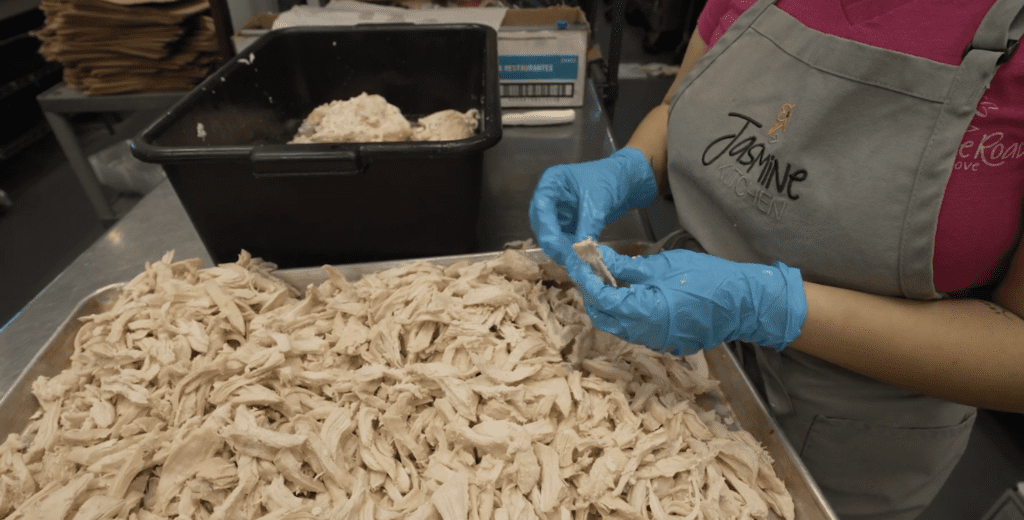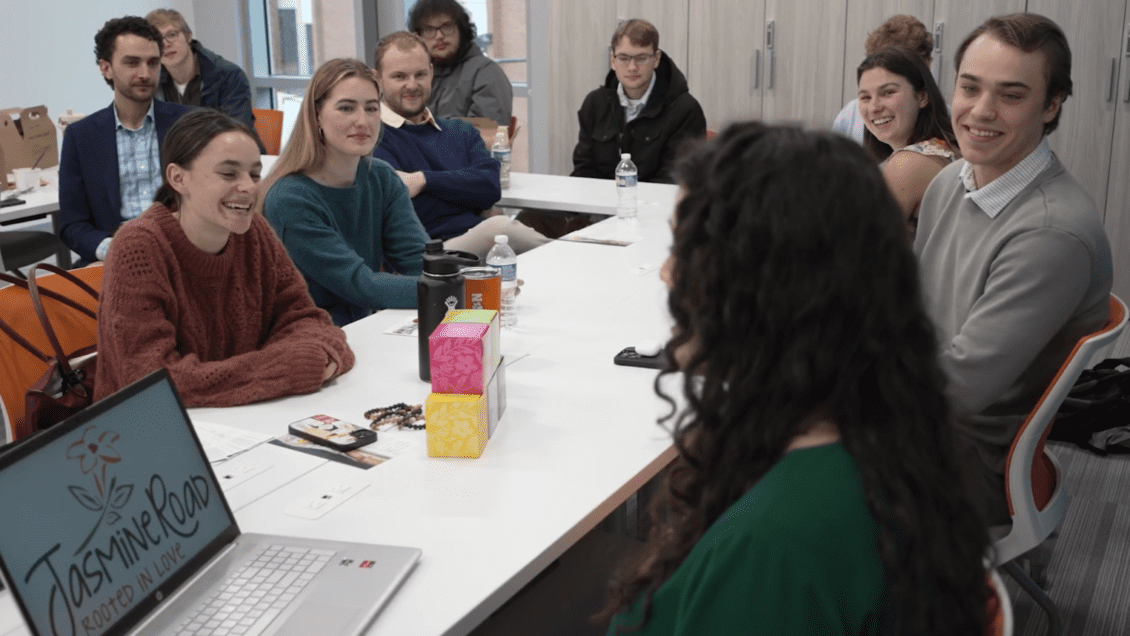A multi-year partnership between Clemson University students and an Upstate nonprofit that works to rebuild the lives of sex trafficking survivors is beginning to bear fruit.
Jasmine Road recently received a $10,000 grant from Bank of America after Department of English Senior Lecturer Will Cunningham and his Fall 2022 Business Writing class spent a semester crafting an application. The nonprofit is South Carolina’s first long-term residential program for adult women survivors of sex trafficking, prostitution and addiction.
“This is a huge accomplishment for the partnership and shows the potential for service learning,” Cunningham said. “This is a class I wish I had taken as a student.”
With the help of the Pearce Center for Professional Communication, three subsequent classes of Cunningham have continued the effort with Jasmine Road, providing students with a unique experiential learning opportunity that aims to further transform the lives of trafficking victims. Students typically spend three weeks writing a research report on Jasmine Road in breakout groups at the start of the semester and then submit different deliverables each week, culminating in a grant application.
CEO Lisa O’Connell-Hall said grant funding is integral for Jasmine Road to operate.
“It gives nonprofits the ability to dream about the bigger picture,” she said. “To have a grant funding stream is critical. Having outside help writing the grants boosts our bandwidth because we are a small team.”
Operations director Hali Tankersley ’15 added that the work from students has been a “huge time saver.”
This partnership is so helpful because it saves me more time than I could calculate off the top of my head. If I apply for a grant and we don’t get it, I still have a fresh narrative that I can plug into another grant application because it’s a numbers game. You could have the best grant in the world, but if it doesn’t pique their interest, you won’t get it.
HALI TANKERSLEY ’15, JASMINE ROAD OPERATIONS DIRECTOR
Makenna Tschetter ’23, reflecting on her classroom experience, stressed the significance of understanding the stories told within a grant application. They transcend asking for money and deftly weave a captivating tale to earn support.
“We often see press releases and announcements of grants being given, but knowing the importance of why the grant was written, as well as the emotion and purpose behind the grant is the real story,” she said. “I think it is that real story that gets lost behind the dollar signs associated with these grants.
“Being able to write a grant for Jasmine Road and learning about Jasmine Road’s mission put a purpose behind those dollar signs,” Tschetter continued. “The facts, statistics and emotion portrayed in this grant speak for how important it is to know what the grant will be used for and applied to in the future. I am immensely grateful that I was able to make a small difference toward a larger cause as a student in my senior year at Clemson University.”
A need for help
Cunningham has a grant writing and nonprofit development background, and is in his sixth year teaching at Clemson. He worked for one nonprofit dedicated to anti-recidivism and was awarded $560,000 in grants over a year.
“I realized I could build an entire class around the idea of partnering with an organization that needs support and integrating those needs into a business communication curriculum,” he said.
Greenville County ranked first in the state for the number of reported human trafficking cases opened in 2023 at 34, according to the state Human Trafficking Task Force. The Upstate reported 112 total, nearly 20 more than the next closest region.
That placement is evident to those at Jasmine Road. The need for help has been present for years. O’Connell-Hall shared that the nonprofit has received almost 400 applications since opening in 2018.

“There’s a huge demand for the type of work we’re doing in our community,” she said. “When you think about Interstate 85 and how much our community is growing, that demand will continue to increase. It takes time to scale up.”
As many as 13 women are admitted into the 18–24-month program that provides free housing, basic needs, medical care, trauma-informed therapy and addiction services. Ladies gradually reintegrate into society and build towards financial independence through working at Jasmine Kitchen, a lunch café near downtown Greenville.
The path forward
With a new semester underway, Cunningham and students intend to submit requests to area high schools during spirit week charity drives and the Leon Levine Foundation.
Tankersley visited the newest class in January and brought a catered Jasmine Kitchen lunch to share more about the nonprofit’s ongoing projects. She cherishes the full circle moment of returning to speak at her alma mater after initially thinking she’d attend law school.
“I went into college thinking I was going to go to law school and that turned out not to be for me,” Tankersley said. “I thank God every day that a professor told me all about nonprofit work and it made me think. My professors challenged me in the sense of, ‘What is it you want to do? What is it that you value in life?’ and encouraging me that it was OK to explore different opportunities and to figure out where I could shine.
“Working here is the shining star in my career. I couldn’t be more fortunate and blessed to be here working with this incredible group of women.”
Cunningham said the reaction from his students to the initiative has been moving.
“They absolutely love it and the challenge. They are often very timid at writing something new. By the end of the process, I have very confident writers,” he said. “A lot of Clemson students are motivated by a mission. There are many lightbulb moments that happen across a project like this and that is what teaching is all about.”
Get in touch and we will connect you with the author or another expert.
Or email us at news@clemson.edu

